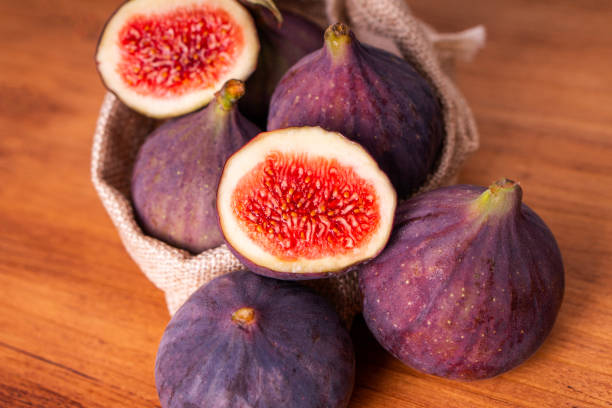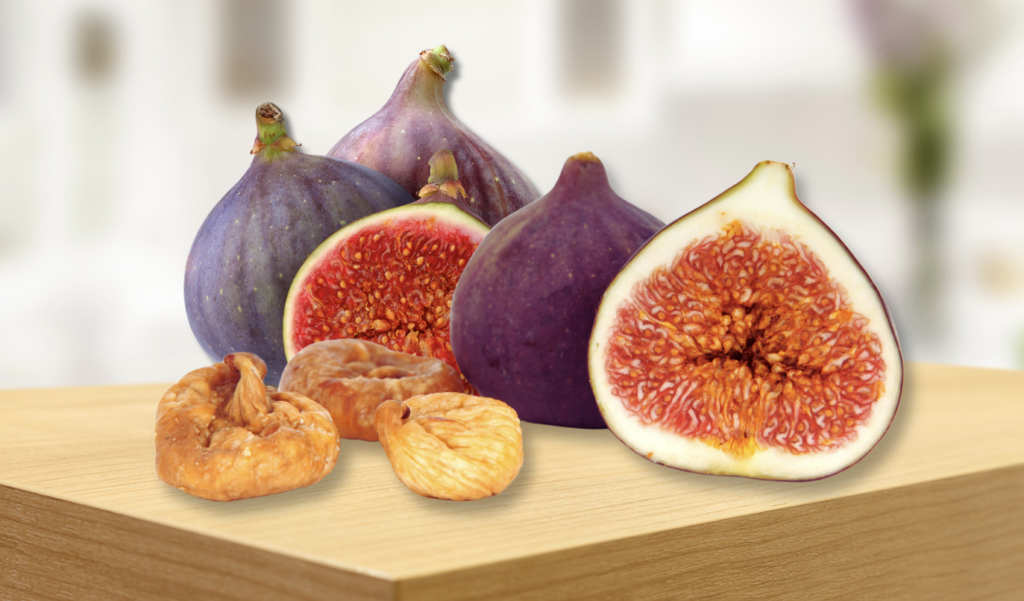What to Eat and Drink
Discover the Amazing Benefits of Different Types of Figs
With this complete guide to different types of figs, you can explore the wonderful world of figs while also getting to know its health benefits. Figs are a flavorful and nutritious fruit that may be consumed in a variety of ways. Whether you favor the sweet and juicy Black Mission figs or the delicate and golden Calimyrna figs, each species has distinct features that will gratify your taste buds.
Figs are not only a tasty delicacy, but they also provide various health benefits. Figs are high in fiber, which promotes good digestion and helps to prevent constipation. They are also high in vitamins and minerals like calcium and potassium, both of which are necessary for overall health. Furthermore, figs contain potent antioxidants that can help protect against oxidative stress and inflammation.
Whether you’re a fig fanatic or new to this delectable fruit, this article will provide you with vital information about the various types of figs available, their diverse flavors, and the health benefits they offer. So, prepare to enter the unique and beautiful world of figs and enrich your gastronomic experience.

Health Benefits of Figs
Figs and its different types are not only a tasty addition to your diet, but they also provide a variety of health benefits. Here are some of the primary benefits of using figs in your meals:
Promote Healthy Digestion
Figs contain a high concentration of dietary fiber, which is essential for a healthy digestion. Figs include fiber, which helps to regulate bowel motions, reducing constipation and promoting regularity. Furthermore, figs include natural laxatives such as cellulose and pectin, which help to relieve constipation. Including figs in your diet can help keep your digestive system running smoothly and avoid discomfort or digestive difficulties.
Provide Essential Vitamins and Minerals
Figs include critical vitamins and minerals that promote general health and well-being. They are high in potassium, a mineral that regulates blood pressure and promotes heart health. Figs also contain calcium, which is essential for healthy bones and teeth. The presence of additional vital minerals in figs, such as magnesium, iron, and copper, increases their nutritional worth.
Offer Antioxidant Protection
Figs contain potent antioxidants that protect the body from oxidative stress and inflammation. Antioxidants serve an important function in neutralizing dangerous free radicals in the body, which can cause cell damage and other disorders. The presence of polyphenols in figs, such as flavonoids and anthocyanins, enhances their antioxidant effects. Including figs in your diet can strengthen your immune system and prevent you from chronic diseases.

Nutritional Profile of Figs
Figs are a nutrient-dense fruit that contributes to a well-rounded and healthy diet. Here is a breakdown of the nutritional profile of figs per 100 grams:
- Calories: 74
- Carbohydrates: 19 grams
- Fiber: 3 grams
- Protein: 1 gram
- Fat: 0 grams
- Potassium: 232 milligrams
- Calcium: 35 milligrams
- Iron: 0.4 milligrams
- Magnesium: 17 milligrams
Figs are a delicious and healthful snack due to their high fiber content and low calorie count. They are also naturally fat-free, making them an ideal alternative for people limiting their calorie intake. The presence of potassium, calcium, and other vital minerals increases the nutritional value of figs.
Common Types of Figs
There are many different types of figs, each with its own flavor and peculiarities. Here are some common varieties of figs you could encounter:
Black Mission Figs
Black Mission figs are distinguished by their deep purple-black color and rich, sweet flavor. Their flesh is smooth and juicy, providing a wonderful blast of sweetness. These figs are commonly used in pies, jams, and salads, bringing a rich flavor to a variety of recipes. Black Mission figs are commonly accessible and can be enjoyed both fresh and dried.
Brown Turkey Figs
Brown Turkey figs are smaller in size than other varieties but are just as delicious. They have brownish-purple skin and a softer, slightly nutty flavour. Brown Turkey figs’ flesh is delicate and juicy, making them a favorite choice for eating fresh. These figs are versatile, and can be used in both sweet and savory cuisines.
Kadota Figs
Kadota figs are defined by a light green skin and pale yellow flesh. They have a delicate, honey-like flavor and a mild sweetness. Kadota figs are commonly consumed fresh, as their mild flavor complements other fruits and cheeses. They can also be used in baking or mixed into salads for a refreshing twist.
Calimyrna Figs
Calimyrna figs are recognized for their golden color and sweet, nutty flavor. They have a firm and chewy texture, making them perfect for nibbling or serving on charcuterie platters. Calimyrna figs are commonly consumed fresh or used in gourmet cuisine. They go well with a variety of cheeses, nuts, and honey, resulting in a delicious flavor combination.

Tips for Selecting and Storing Figs
To ensure you enjoy the best quality figs, here are some tips for selecting and storing them:
- Look for plump, tender figs free of bruises and blemishes. The skin should be somewhat wrinkled but not too dry.
- Avoid figs that are overly mushy or have a fermented odor, as this indicates deterioration.
- Refrigerate fresh figs in a ventilated container, such as a paper bag, for up to three days.
- If you have an oversupply of figs, consider freezing some for later use. Simply wash and dry the figs, then store them in a freezer-safe bag or container. Frozen figs can be mixed into smoothies, baked dishes, or used to top yogurt or porridge.
By following these tips, you can ensure that your figs stay fresh and delicious for longer, allowing you to savor their unique flavors whenever you desire.
Conclusion
In conclusion, I’ve come to appreciate that the different types of figs are not only a delectable fruit but also pack a punch when it comes to health benefits. From their role in promoting healthy digestion to providing essential vitamins and minerals, I’ve found that figs make a nutritious and flavorful addition to my diet. Exploring various types of figs, such as the sweet Black Mission figs, the mild Brown Turkey figs, the delicate Kadota figs, and the golden Calimyrna figs, has allowed me to discover the diverse and exquisite world of fig varieties, each offering a unique palate experience.
Trusted Health, Wellness, and Medical advice for your well-being


